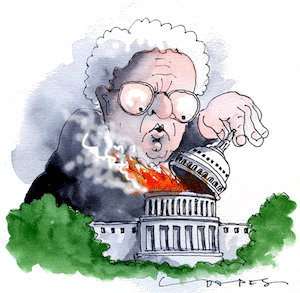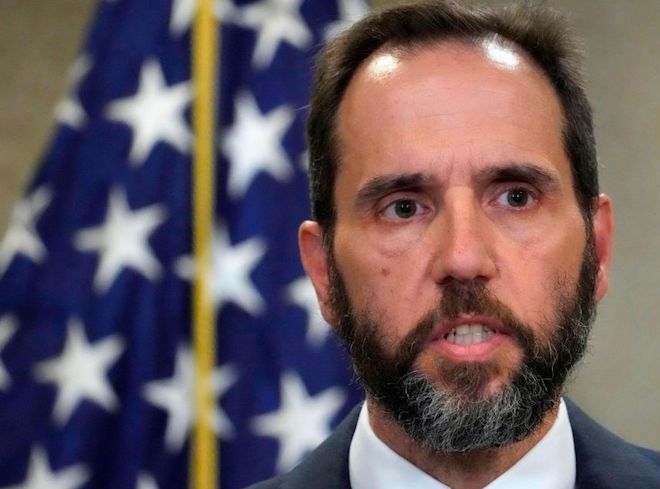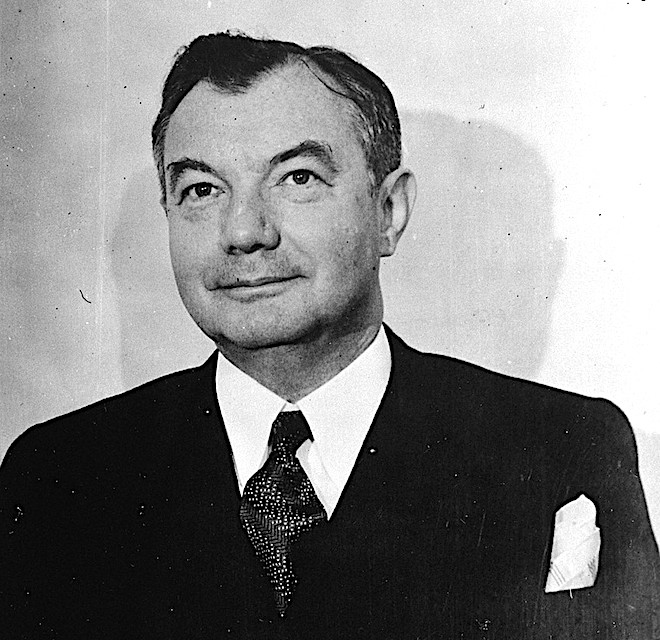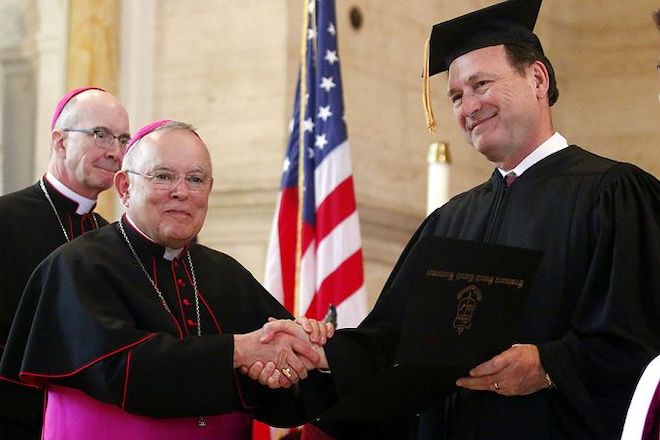Deep doo-doo
Trump indictment ... Top secret, purloined documents ... Fingered by his own people ... More indicting to be done ... Dangerous crim running for president ... Latest from the Supreme Court ... Clarence Thomas weighs in on one of Harlan Crow's cases ... Roger Fitch reports from Washington
"How many indictments does it take to bring down a cult leader?" - The Intercept
 There's not much news to report from the US, other than the federal indictment for espionage of a former president, and the apparent indifference with which it was greeted by his mentally or morally-deficient supporters.
There's not much news to report from the US, other than the federal indictment for espionage of a former president, and the apparent indifference with which it was greeted by his mentally or morally-deficient supporters.
As Salon observed apropos the MAGA response to Trump's dinner party with "Hitler fanboys":
"If anything, Republican voters keep rallying to his side, predictably pleased that Nazi-snuggling has the liberal-triggering effect they crave."
Still, Espionage Act violations? Shouldn't that disturb them?
Just Security had already provided a model prosecution memorandum analysing six federal crimes that could form the basis for charges against Trump who, in the event, was charged with seven crimes.
The indictment, which included charges against his former While House valet and loyal acolyte, Walt Nauta, ran to 38 counts.
Even before charges had been filed in a Florida court (and the arraignment randomly assigned to the horrible Trump-judge Aileen Cannon), the Trump-backlash began; as TPM put it:
"The GOP speaker of the House, GOP senators and representatives, the leading GOP candidates for president, and the whole right-wing Wurlitzer launched a furious attack on the rule of law."
In fact, Trump faces very serious charges under the espionage laws; as George Bush père would say, he's in deep doo-doo, and his prior statements about classified documents don't help him.
 Walt Nauta: collar attendant and valet
Walt Nauta: collar attendant and valet
The indictment itself (a "speaking indictment") cites a 2018 quote in which Trump railed against -
"... the practice of former officials maintaining access to our Nation’s most sensitive secrets long after their time in Government has ended. Such access is particularly inappropriate when former officials have transitioned into highly partisan positions and seek to use real or perceived access to sensitive information to validate their political attacks. Any access ... to ... secrets should be in furtherance of national, not personal, interests."
That quote, seized upon by savourers of hypocrisy, concerned Trump's threatened revocation of the security clearance of Obama's CIA director, John Brennan, now enjoying considerable Schadenfreude.
Just Security has more on the purloined and withheld "MAL" documents, named after Mar-a-Lago, the tasteless lair of America's clase-baja ex-presidente.
It seems that it was at MAL that the accused may have been hoisted by his own security cameras, and indeed his own employees, some of whom seem to have dobbed him in.
The investigations into the theft of government documents (many classified or top secret) had recently intensified, with new layers of criminality detected by the special prosecutor Jack Smith.
Even as Smith investigated a smorgasbord of possible criminal offences, he received unexpected assistance through Trump's wildly-incriminating boasting about his actions.
 Smith: detected new layers of criminality
Smith: detected new layers of criminality
There's still the civil fraud case against Trump in New York, with a trial scheduled for October, and Trump is also likely to be criminally indicted again, probably this summer in Georgia.
Even so, Mr Trump, confident in the bottomless credulity of his followers, vowed he will continue his campaign for president, even if convicted of the federal charges in Florida.
It's risky for democracy: the danger of having a convicted criminal as president, one who won't hesitate to pardon every crime from 2020 and 2021, and purge every Justice Department and FBI official he bears a grudge against, yet a rematch of Trump and Biden looks all upside for Joe Biden.
Perhaps 74 million-(very)odd Americans did vote for Trump in 2020, yet surely, a few adherents to his cult will awake from their mass delusions, their folie, as a result of the latest charges.
≈ ≈ ≈
Supreme Court justice Louis Brandeis once said:
"We can have democracy in this country, or we can have great wealth concentrated in the hands of a few, but we can't have both."
Little did Brandeis anticipate that judges would become the target of that great wealth, hollowing out democracy from the place of last resort. He would have known conservative politicians who became judges, but perhaps not judges who became politicians on the bench.
The present court has six political justices, and this final month of the court's term is being closely watched to see what role politics plays in the pending cases, notably, the technically-moot test case of the newly-invented Independent State Legislature Theory.
If ISL is recognised, then, as Justice Robert Jackson wrote in the internment case Korematsu:
"... the principle ... lies about like a loaded weapon ready for the hand of any authority that can bring forward a plausible claim of an urgent need."
More here on Moore v Harper and why it should be dismissed.
 Robert Jackson: warned about the "loaded weapon"
Robert Jackson: warned about the "loaded weapon"
There have been surprises from the court, some indication that the majority are pulling back from the conservative-agenda brink. To the surprise of many, section 2 of the Voting Rights Act, the prohibition against race-based gerrymanders, has been maintained.
Ten years ago, in Shelby County v Holder, Chief Justice John Roberts nearly destroyed the VRA, a goal of his since his days as a Reagan administration lawyer.
Now, in Allen v Milligan, Roberts has rescued an important remnant of Lyndon Johnson's signature 1965 voting rights legislation.
Sadly, the court only did so after manipulating the decision to fall after the 2022 election cycle, in which its implementation might have resulted in enough additional seats to give Democrats control of the House.
Another surprise was the Talevski decision, a Medicaid case that upheld the mechanism for beneficiaries of federal spending programs to sue if states violate their rights.
There was bad. After an attack on unions that attracted liberal support (Glacier Northwest v Teamsters), the court gutted wetlands regulations under the Clean Water Act. The court had already gelded the Clean Air Act, last term, in West Virginia v EPA.
Justice Alito's majority opinion in the wetlands case was so extreme that Brett Kavanaugh declined to join it, and the remaining 5-4 majority could not have occurred without Clarence Thomas's vote.
Shortly after the vote, it came out that Thomas's patron, the Texas developer Harlan Crow, had been heavily involved in bringing the case and supporting it - not least through amicus briefs of organisations in which he plays a significant part.
 Alito: extreme opinions
Alito: extreme opinions
Crow has other causes. There's to be a new challenge to the Chevron precedent. That's the doctrine that the courts should generally accord deference to federal agency decisions as expressed in their policies, regulations and rules.
Overturning this 1984 precedent, once supported by Clarence Thomas, has long been the holy grail of corporate America including Harlan Crow.
There's meanwhile much to fear from last term's Dobbs decision withdrawing, for the first time, a constitutional right. ProPublica has a data base of all the constitutional rights that may be on the chopping board.